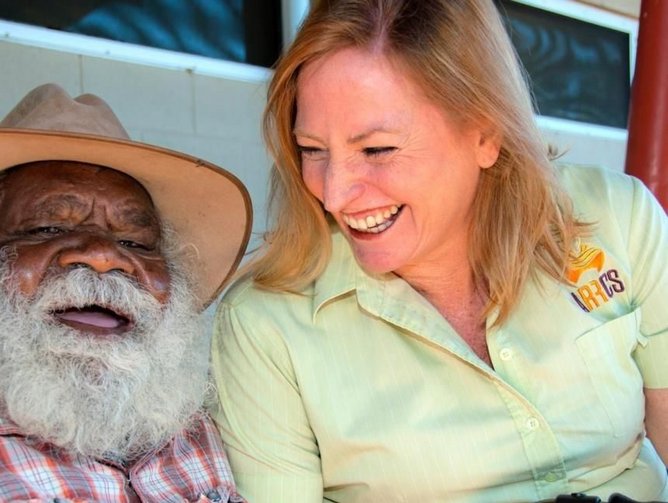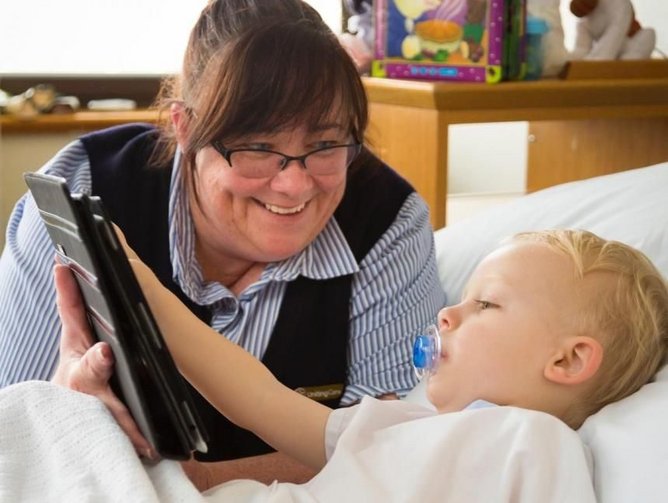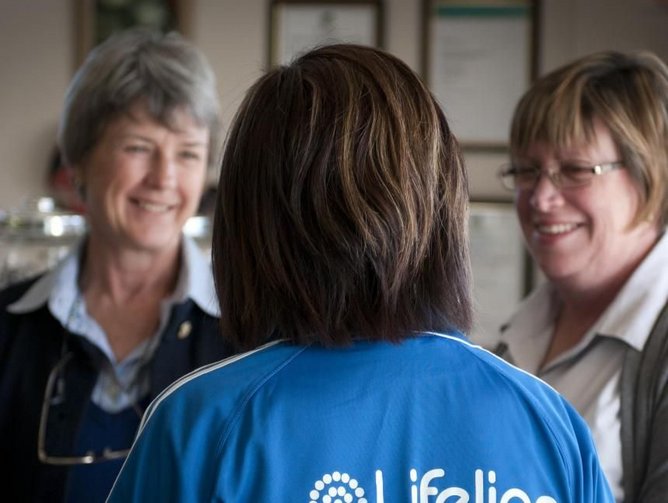UnitingCare Queensland partners with Wipro on a digital transformation in community care
When BizClik Media last spoke to Nina Du Thaler she was CIO at Queensland Urban Utilities (QUU), the organisation that provides water to the greater Brisbane area. During her time there she was able to deliver Q-Ops, a platform that aggregates data from business systems into a single location to help operations staff manage Queensland’s sewer and water networks effectively, establish a robust governance framework across the organisation and a mature programme, and deliver a strategic ICT vision and roadmap. The outcome, a better experience for consumers and employees alike, was a great satisfaction to her, though if anything, she’s proudest of her work in improving team effectiveness and culture. She has never been a stereotypical techie, taking a broad view of her contribution, and that of the organisation, in the society at large.
In 2016, UnitingCare Queensland approached Nina. UnitingCare is one of Australia’s largest charities, focusing on health and community services across Queensland and the Northern Territories. It employs 17,000 people assisted by more than 9,000 volunteers to deliver community health services, care for the elderly, and acute medical services at its not-for-profit hospitals including The Wesley Hospital, St Andrew’s War Memorial Hospital in Brisbane, and St Stephen’s, which became Australia’s first fully integrated digital hospital when it opened in 2014. The new position they created was that of Group Executive, Digital and Technology, reflecting the strategic importance of commoditising the groups’ IT environment, digitising the groups’ services and making sense of the huge volumes of data flowing in from its IT platforms.
The organisation was facing a number of challenges at the time, she explains. “UnitingCare was undertaking a major transformational change. It was working on bringing together unique businesses which had different IT teams, different back-office systems, fragmented data and it wasn’t working well for the organisation.” The businesses - encompassing in-home and residential aged care, lifeline retail stores and counselling support, child and family services and hospital services had been operating in silos.
Wearing her CIO hat she particularly liked it that UnitingCare was leading the digital hospital concept, in which patient data is captured and directly fed into the electronic medical record (EMR). It represents a quantum leap in quality, safety and patient experience, transforming healthcare delivery, she says. However the hospital environment is only one place IT can make a difference. Blue Care is Queensland’s leading in-home, retirement living and aged care provider. Many of its service users rely on Australia’s National Disability Insurance Scheme (NDIS), which has proved hard to access and navigate since its rollout in 2016: one of Nina du Thaler’s pet projects was the development of NDIS Planning, an app launched in 2019 that simplifies the complex documentation and the application procedure.
The digital and technology position was defined during the creation of a new executive leadership team (ELT). “We needed to be focusing on how we could add value to the business, pivoting into the digital space, and how this can help transform the organisation.” Du Thaler recognised this as an opportunity to align her CIO and relational skills with the community and healthcare sector which though new to her was attractive because of its focus on people and role in society. “This job was enticing to me as much from the point of view of culture, human interaction and service delivery as of technology. The two are inseparable really. This organisation has huge potential, a great track record and to be able to say that I’m helping transform it and make it sustainable into the future is a really positive thing from my point of view.”
Built on compassion
One of the things she likes about UnitingCare is its mission-led ethos. It attracts people like herself. People who are driven by a desire to improve the physical, mental and spiritual health of the community never just see their job in terms of income generation. “We have a great number of extremely effective carers, healthcare and social workers: they are motivated by a commitment to the people in our community and I think that is a really positive aspect of our organisation.”
Maintaining this ethos is vital, though it does entail a balancing act, sometimes approaching conflict, when it comes to commercial accountability. Not for profit organisations still need to be viable, generating surplus funds that can be used for much needed expansion. Nina Du Thaler recognises that her job, to all intents and purposes, is to maintain the balance and keep close control of IT spending whilst delivering change and value for money and keeping UnitingCare sustainable. “My team have a huge responsibility, oversight of risk and cybersecurity, maintaining the health of the supporting infrastructure and applications – all the usual concerns of the CIO’s office – but we also have to strive to deliver a range of projects focused on new products, services and ways of working.”
The last two years for her have been a time of readying the organisation to take advantage of the brave new world of IoT, automation and AI by dealing with a host of legacy issues, notably starting the journey towards unifying some of the platforms used by the different parts of the organisation already mentioned and transforming UnitingCare’s service delivery model. “Those things have placed us in a good position to embark on a more digital and innovative future,” she says, “and we’re now poised for that future.”
UnitingCare’s transformation, stemming from the creation of Du Thaler’s Digital and Technology (D&T) organisation, was recognised by the iTnews Benchmark Awards 2019, in which it is a finalist. The citation points to UnitingCare’s focus on reducing overhead costs while also improving the IT service delivery model in ‘an incredibly competitive marketplace with limited funding streams’. In other words, value for money.
Ethical sourcing
The outcome is worth some attention: a competitive and comprehensive tender process was embarked on, to replace its fragmented, legacy service delivery model with a managed services partner model. There were many companies that could have helped with this, she acknowledges, but capacity and price were not the only consideration. “This procurement process was a bit different because of the influence and guiding ethics of the Uniting Church. We looked deeply into the conduct of these companies to satisfy ourselves they had ethical supply chains, processes and labour management credentials. Another consideration was UnitingCare was very interested in whether the organisations we partnered with could support communities in the areas in which we worked.”
The chosen partner was the Indian software provider Wipro, named in 2017 as the most ethical company in the world. “One of the things that attracted us to Wipro was that it is a truly global company, with a large Foundation driven by the company’s chairman Azim Premji. Wipro gives an amount of its revenues back to the community in the form of, among other things, support for education in India, community support programmes in India and the Philippines, and, of course, primary healthcare. We were determined to partner with a large organisation that had the depth and breadth of skills that can help support our growth.”
The transformation, largely completed in mid-2018, has already reduced internal labour, lowered service delivery costs and improved the health of the IT environment. Though projected savings in the current financial year are expected to be minimal, by year 3 of the agreement savings are expected to reach $4.3 million. In addition, the project has shifted operational delivery and the risks associated with this away from the organisation, while also freeing up Nina Du Thaler and her team to focus on value-add projects and “customer intimacy”, a key outcome for future innovation.
Delivering the benefits of automation
The in-house team is lean and getting much more focused now. It continues to oversee business critical functions like governance and the strategic direction and design. A lot remains to be done, and many learnings have been surfaced but in some areas, there have been real functional improvements. A good example is the service desk. When she came in, Du Thaler recalls, people phoning in to UnitingCare were experiencing an abandonment rate of over 40%, that is to say that calls were either not answered or people were kept waiting so long they hung up. Today the abandonment rate is below 3%, and over 60% of queries are fixed at the service desk without needing to be referred on. That’s a huge improvement, but there’s room for further improvement she says.
Currently, she is targeting her D&T organisation in a limited number of directions. “One of the big ones continues to be bedding in all the new ways of working and frameworks that we have designed over the past 12 months. We are working closely with specific areas of our business that need refinement of the service delivery model and we are realigning many of our service level agreements (SLAs) with business criticality and business need. UnitingCare is also moving to a consumption-based cost reallocation model: we want to share the drivers of cost with our internal customers so that they can manage those themselves.”
Customers are going to see further service improvements in the coming year, she promises, with more self-service capability. They might not even notice some of these changes, but will appreciate new ways of engaging through AI tools such as chatbots, which she plans to introduce to further enhance the service experience. “We are implementing foundational technology,” she adds. “Like an integration hub, an identity management platform and an information analytics platform, and we are also replacing some back-office systems like our financial management information and CRM systems.” Post implementation, all of these systems will be transitioned to Wipro for support.
Nina Du Thaler confesses that her job with UnitingCare takes up most of her resources, but she retains a long-standing passion for education and the advancement of understanding and the entrepreneurial spirit especially among young women. She is the author of a series of cyber-safety books called Diary of Elle that address issues of current concern like the use of mobile phones and the social impacts of our online world, and continues to run her own publishing company Bright Zebra. “The books are a labour of love and I pursue that when my executive job allows.” She is also an industry advisory board member and adjunct fellow at the school of ICT at her alma mater Griffith University helping to shape their degree courses and hopefully bring on the women executives of the future.





